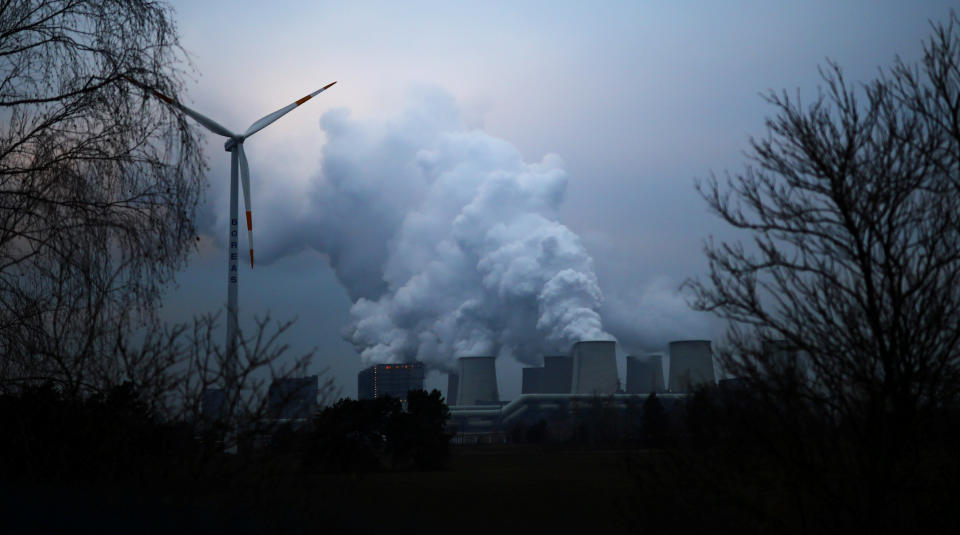Germany aims to exit all coal power by 2038

Germany should exit coal power by 2038, according to a hotly anticipated proposal by the country’s coal commission. The debate on a feasible coal exit has been raging for more than six months in Germany, where the pressure is mounting to tackle carbon emissions from fossil fuels.
Nearly 40% of Germany’s electricity is coal-generated. German chancellor Angela Merkel acknowledged the difficulty of weaning the country off its dependency on lignite, or brown coal, at Davos last week. After the country exits nuclear energy in 2022, Merkel said, “we have a different problem, in that the only source that can generate energy all the time is brown coal… that obviously emits a lot of CO2.”
The commission report recommends that as a first phase, power-plant companies should shut down 12 gigawatts of capacity, and all brown-coal plants should be taken offline by 2022.
Germany is aiming to reduce its CO2 emissions by 40% by 2020, from 1990 levels, and the coal exit will help with that. The phase-out proposal has received a largely positive response among lawmakers, with economy minister Peter Altmaier saying that the government would move ahead quickly to implement the report’s recommendations.
READ MORE: Angela Merkel says Germany will keep buying Russian gas
The 2038 phase-out was an acceptable compromise to environmentalists, many of whom had pushed for an earlier exit. “It’s better to have bad climate protection than no climate protection at all,” said commission member Kai Niebert, head of the DNR environmental organisation.
However, some power company executives have said it is too fast.
RWE said an exit by 2038 is “too soon.” “How many employees will be affected, we can not say at the moment,” RWE chief executive Rolf Martin Schmitz told the Rheinische Post newspaper on Monday. “But I expect a significant reduction by 2023.” Some 20,000 people work in the lignite industry.
The coal commission said that power companies and regions where jobs will be lost to plant closures need to be compensated by the state—and that the extra costs should not be added onto power prices for consumers. It recommends that €40 billion ($45.6 billion) should be paid out to the main lignite-plant regions between now and 2040.

 Yahoo Finance
Yahoo Finance 